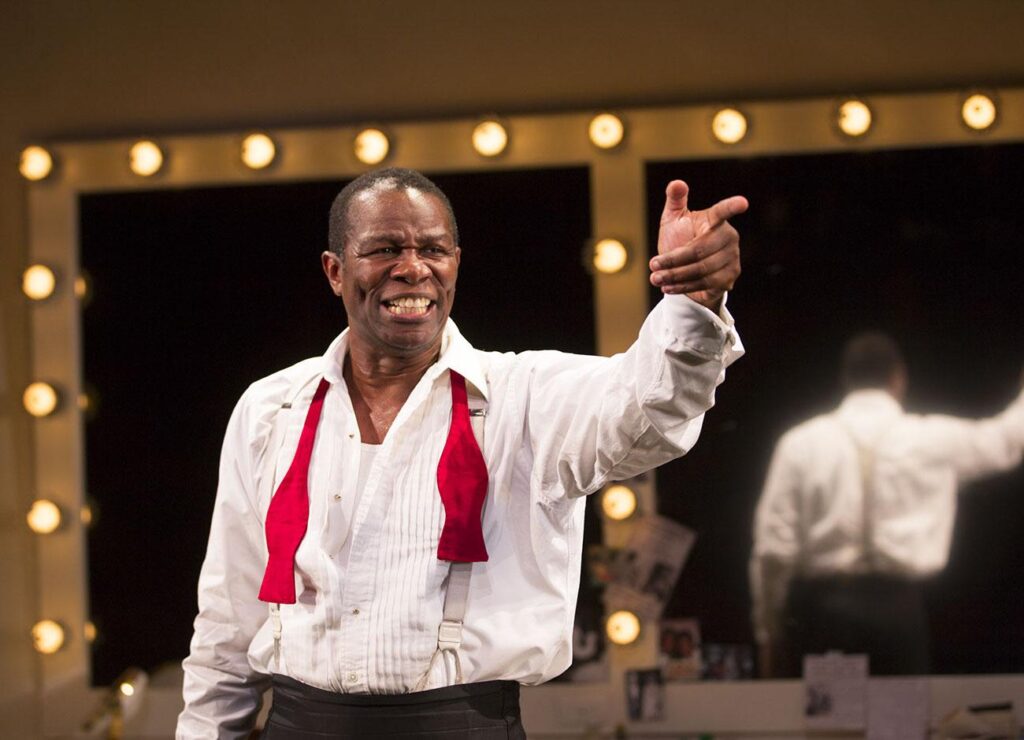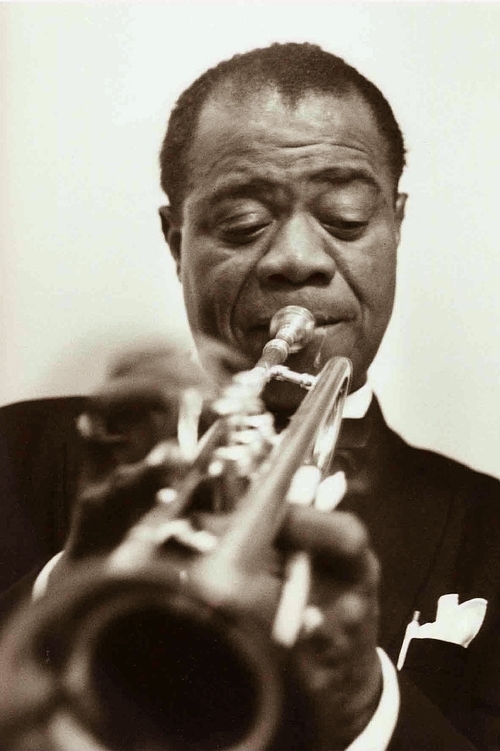“If you don’t love him, I don’t think you really know how to love.” Mahalia Jackson on Louis Armstrong
“If I told you what I really thought about Louis Armstrong, you’d probably arrest me for indecent exposure.” Wild Bill Davison

I try to enliven my spirits everyday with at least one tune by Louis Armstrong. Whether my disposition is fair or foul, Satchmo makes everything a little bit better. By today’s count, I’ve got a file of 293 Armstrong recordings on my desktop and many more on CD, and there’s hardly a one I don’t dig, so I’m standing pat with Pops. If the day comes when I seem indifferent to him, check my pulse.
Pops is very much on my mind this week as I look forward to seeing Terry Teachout’s one-act play, “Satchmo at the Waldorf,” at Shakespeare & Company this weekend. It opened last Wednesday and runs through September 16 in Lenox before moving on to the Long Wharf Theater in New Haven. Both the published reviews and word on the street are full of praise for Teachout’s debut effort as a playwright and for the acting of John Douglas Thompson, who plays both Armstrong and his manager Joe Glaser, and in a brief scene, Miles Davis. I last saw Thompson in the role of Othello at S & Co. and relish the prospect of seeing him in a performance the Boston Globe hails as a “tour de force” that “gets to the essence of the man.” By all accounts, the essence Teachout and Thompson dramatize is far more complex, revealing, and profane than the Armstrong of popular lore.

As it happened, Armstrong didn’t let his music do all the talking, and what his stage persona often concealed was laid bare more fully through his voluminous writings and correspondance. When he wasn’t on the bandstand or making records, he was often talking his life’s story into one of the bulky tape recorders he carried with him on the road, or writing it down on his trusty Royal portable. Jack Bradley, his photographer and aide-de-camp, told me 20 years ago that no matter what diversions the day might offer, Armstrong’s focus was always on that night’s performance, but there are times when it seems he was even more eager to “swing a lot of Type Writing,” as he put it in a 1955 letter to Glaser.
Satchmo’s extensive writings have been culled for numerous publications, among the most recent being Teachout’s new play and his critically-acclaimed 2009 biography, Pops: A Life of Louis Armstrong; Ricky Riccardi’s What a Wonderful World: The Magic of Louis Armstrong’s Later Years; Michael Cogswell’s Louis Armstrong: The Offstage Story of Satchmo; and two volumes by Thomas Brothers, Louis Armstrong in His Own Words, and Louis Armstrong’s New Orleans.

Here’s a valuable life lesson that Armstrong related in his essay, “Scanning the History of Jazz,” which he wrote for the Jazz Review in 1960. Brothers calls it “a powerful analogy that sheds light on Armstrong’s musical and spiritual values.”
“Always remember—Louis Armstrong never bother about what the other fellow is playing, etc. A musician’s a musician with me. Yea—I am just like the Sister in our Church in N.O., my home town. One Sunday, our pastor whom we all loved happened to take a Sunday off and sent in another preacher who wasn’t near as good. The whole congregation “frowned on him” except one Sister. She seemed to enjoy the other pastor the same as she did our pastor. This aroused the Congregation’s curiosity so much—until when Church service was over they all rushed over to this one Sister and asked her why did she enjoy the substitute preacher the same as our regular one? She said, ‘Well, when our pastor preach, I can look right through him and see Jesus. And when I hear a preacher who’s not as good as ours—I just look over his shoulder and see Jesus just the same.’ That applies to me all through my life in music ever since I left New Orleans. I’ve been just like that sister in our Church. I have played with quite a few musicians who weren’t so good. But as long as they could hold their instruments correct, and display their willingness to play as best they could, I would look over their shoulders and see Joe Oliver and several other great masters from my home town. So I shall now close…Tell all the fans and All musicians, I love Em Madly. “
